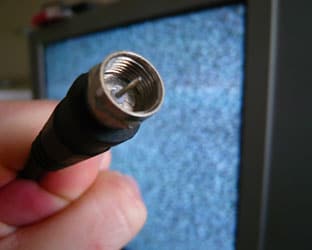Although parents may say TV viewing times should be limited or used to educate their children, a University of Cincinnati study finds that the boob tube is often blaring and disruptive in many households. The new study finds young children are watching TV, videos and other screen media while parents are trying to take care of other tasks in the home.
Principal investigator Sue Schlembach discovered that although parents believed screen media could be used as an important learning tool for their young children, parents rarely use it for that purpose.
The findings come from a questionnaire answered by 21 people that explored parents’ beliefs, attitudes and behaviors into children – aged six months to five years – and screen media, reported PsychCentral.
In the study, researchers explored four areas concerning children and screen time:
–Did parents believe screen media could be an important educational tool?
–Did they believe it was important to watch programs together with their child?
–Did parents use screen time for instructional purposes, set rules or restrictions on screen use, or mainly use it as a monitoring or recreational activity?
–Did parents have a positive, neutral or negative attitude toward children’s screen media use?
Schlembach says her research supported previous national studies that parents may be doing other tasks while young children are watching TV.
Over half of the responders said they left the TV on during meals and 48% indicated that often, the TV was on when no one was really watching.
Schlembach says she was interested in exploring parental attitudes about kids and screen time because she was interested in early childhood development – specifically, young children and implications surrounding the contextual nature of screen use and learning.
The study was also motivated by American Academy of Pediatrics (AAP) recommendations that there should be no screen-media viewing at all for children under age 2, and that for older children, parents should engage in viewing and interacting with their children about the program material.
“This is a study that is certainly not meant to judge people, but rather to educate people about what’s going on at home,” Schlembach said. “For young children, meal time is a really important part of the day. It’s a time for parents to engage in conversation with their children, serve as role models for dining behavior and also build on language and social skills.
Investigators hope the findings will stimulate primary care health providers to discuss screen media time with parents, consistent with the AAP recommendations.
See the PsychCentral story here





A study of 21 surveys is not worth the pixels to report on it – a Facebook post and replies has more validity.
Indeed a larger more nationally representative sampling would yield more robust results! More research in the area of young children and their screen media use/exposure is needed. The study was done as an exercise used to provoke thought and conversation regarding the content, context, and the young age children are exposed to and are viewing screen media in the home. Caregivers would do well to establish early on in their child’s life whether the purpose of screen media in the home is to be used for education or for recreation and to monitor their child’s screen time/content. Time spent viewing the screen in isolation may be displacing parent-child interactions vital for healthy growth and development of young children.
Comments are closed.